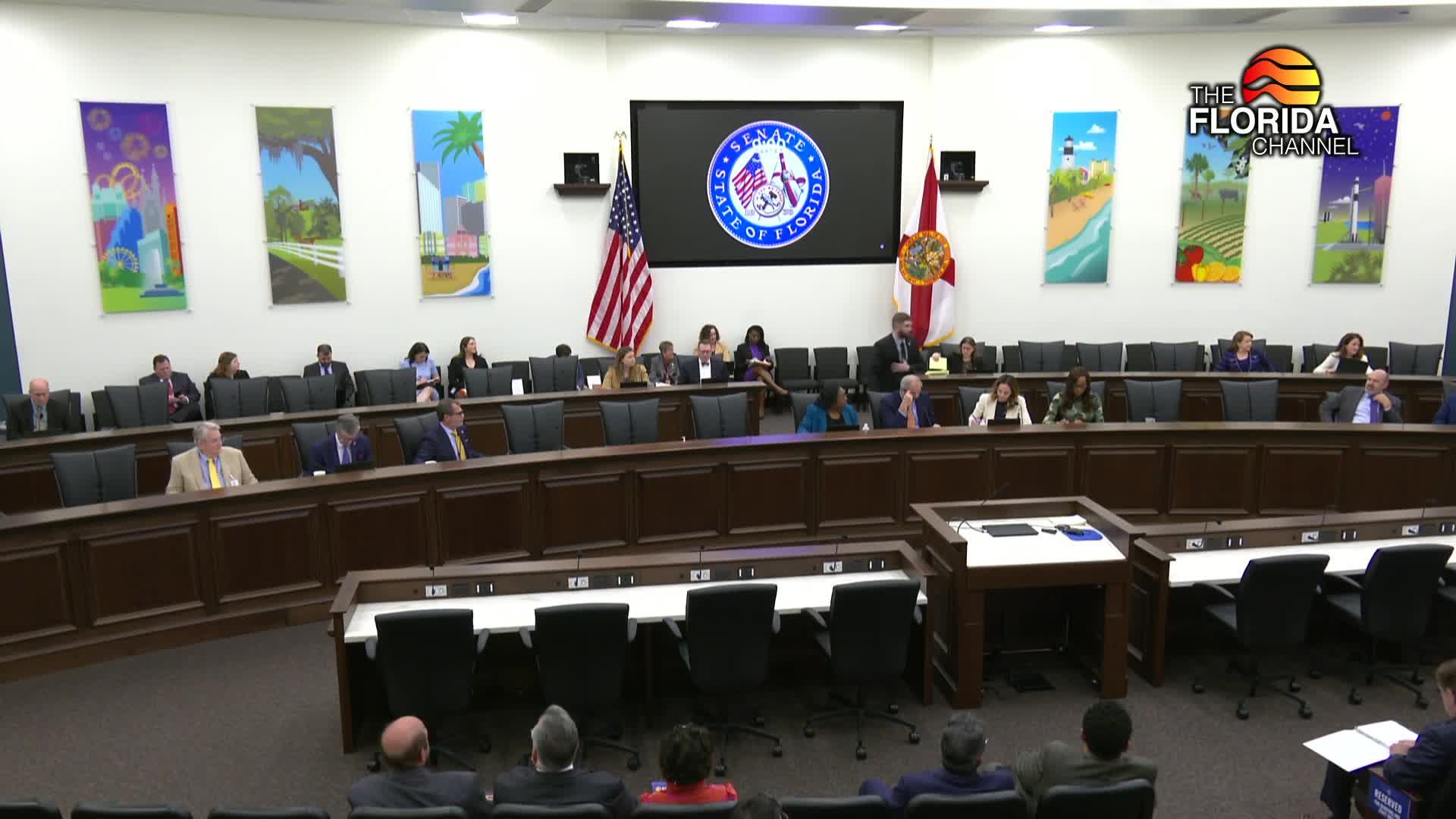Senate committee advances 'Trenton's Law' to criminalize first refusals, expand misdemeanor warrants for DUI cases
Get AI-powered insights, summaries, and transcripts
Subscribe
Summary
The committee voted to report favorably on CS for CS/SB 138, 'Trenton's Law,' which would criminalize a first refusal to submit to a lawful breath or urine test, allow misdemeanor blood warrants in more DUI cases, and increase mandatory minimum jail time for driving on DUI-related suspensions.
Senators on the committee voted to report CS for CS/SB 138 favorably after testimony from the bill sponsor, law enforcement, prosecutors and defense representatives.
The measure, introduced by Senator Wright and cited in the session as “Trenton’s Law,” would amend Chapters 316 and 327 to broaden covered substances to “any impairing substance,” reclassify refusal to submit to lawful breath or urine testing (a first refusal) as a second-degree misdemeanor and make a second or subsequent refusal a first-degree misdemeanor. The bill would also bar courts from suspending, deferring or withholding adjudication for such refusals, allow issuance of search warrants for blood in more cases, impose mandatory minimum jail sentences for driving on DUI-related suspensions (30 days for a first conviction, 60 days for a second, 90 days for a third or subsequent), and raise penalties to a first-degree felony for DUI causing death when the offender has a prior DUI-with-death or vehicular-homicide conviction.
The bill is named in memory of 18-year-old Trenton Stewart, who the sponsor said was killed on 05/09/2023 by a driver with a prior vehicular homicide conviction. Senator Wright said the measure would better align DUI statutes with implied-consent law and remove legal gaps that allow repeat offenders to drive while suspended.
Trooper Susan Barge told the committee law enforcement supports the change to cover all impairing substances and to permit blood warrants in misdemeanor DUI and DUI-with-injury cases where investigators now cannot obtain blood evidence. “With any impairing substances, what's important about that is you can go to the grocery store…the over-the-counter medicine … go out and drink the whole bottle of it, then get in a car and drive and crash and kill somebody,” Trooper Barge said, urging the committee to close the current gap that leaves some impairing substances outside controlled-substances lists.
Garrett Berman, executive director of the Florida Prosecuting Attorneys Association, urged support and cited data saying refusals comprised more than 36% of DUI arrests over the last three years: 16,257 refusals out of more than 44,000 DUI citations. He also endorsed allowing warrants in misdemeanor blood cases and the proposed penalties for driving on DUI suspensions.
Aaron Waite, legislative chair for the Florida Association of Criminal Defense Lawyers, said his group supports the bill’s goal of punishing repeat offenders but warned the “any impairing substance” language could criminalize people who suffer unforeseen adverse reactions to legitimately prescribed medicines. He recommended adding a scienter element (for example, a requirement that the person “knew or reasonably should have known” the substance was impairing) and raised concerns about making refusals permanent on criminal records and including diversion completion on driving records without an expunction path.
The committee roll call recorded a majority of yes votes and one no. By the committee’s announcement, CS for CS/SB 138 was reported favorably.
Votes at a glance: CS for CS/SB 138 was reported favorably (roll call recorded one No vote from Senator Davis and Yes votes from the remaining senators listed by the clerk).
The bill now moves to the next legislative step reported favorably by the committee; the sponsor and witnesses said the measure aims to reduce impaired-driving deaths and close evidentiary gaps described by law enforcement.
